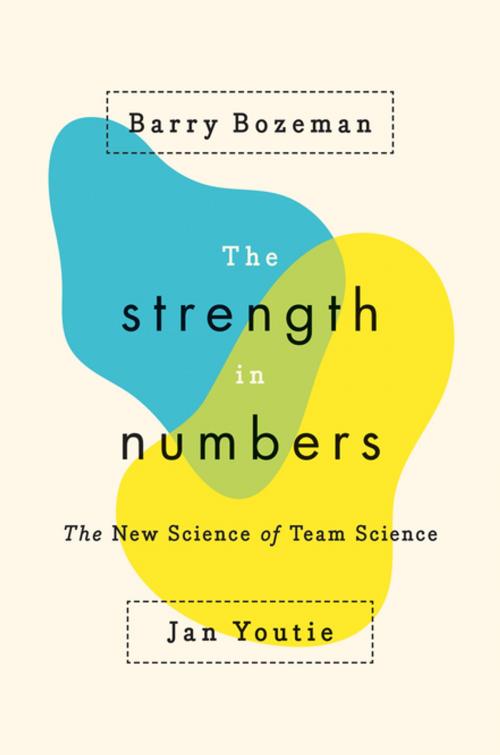The Strength in Numbers
The New Science of Team Science
Nonfiction, Science & Nature, Technology, Operations Research, Science, Other Sciences, Methodology| Author: | Barry Bozeman, Jan Youtie | ISBN: | 9781400888610 |
| Publisher: | Princeton University Press | Publication: | October 23, 2017 |
| Imprint: | Princeton University Press | Language: | English |
| Author: | Barry Bozeman, Jan Youtie |
| ISBN: | 9781400888610 |
| Publisher: | Princeton University Press |
| Publication: | October 23, 2017 |
| Imprint: | Princeton University Press |
| Language: | English |
Once upon a time, it was the lone scientist who achieved brilliant breakthroughs. No longer. Today, science is done in teams of as many as hundreds of researchers who may be scattered across continents and represent a range of hierarchies. These collaborations can be powerful, but they demand new ways of thinking about scientific research. When three hundred people make a discovery, who gets credit? How can all collaborators’ concerns be adequately addressed? Why do certain STEM collaborations succeed while others fail?
Focusing on the nascent science of team science,The Strength in Numbers synthesizes the results of the most far-reaching study to date on collaboration among university scientists to provide answers to such questions. Drawing on a national survey with responses from researchers at more than one hundred universities, anonymous web posts, archival data, and extensive interviews with active scientists and engineers in over a dozen STEM disciplines, Barry Bozeman and Jan Youtie set out a framework to characterize different types of collaboration and their likely outcomes. They also develop a model to define research effectiveness, which assesses factors internal and external to collaborations. They advance what they have found to be the gold standard of science collaborations: consultative collaboration management. This strategy—which codifies methods of consulting all team members on a study’s key points and incorporates their preferences and values—empowers managers of STEM collaborations to optimize the likelihood of their effectiveness.
The Strength in Numbers is a milestone in the science of team science and an indispensable guide for scientists interested in maximizing collaborative success.
Once upon a time, it was the lone scientist who achieved brilliant breakthroughs. No longer. Today, science is done in teams of as many as hundreds of researchers who may be scattered across continents and represent a range of hierarchies. These collaborations can be powerful, but they demand new ways of thinking about scientific research. When three hundred people make a discovery, who gets credit? How can all collaborators’ concerns be adequately addressed? Why do certain STEM collaborations succeed while others fail?
Focusing on the nascent science of team science,The Strength in Numbers synthesizes the results of the most far-reaching study to date on collaboration among university scientists to provide answers to such questions. Drawing on a national survey with responses from researchers at more than one hundred universities, anonymous web posts, archival data, and extensive interviews with active scientists and engineers in over a dozen STEM disciplines, Barry Bozeman and Jan Youtie set out a framework to characterize different types of collaboration and their likely outcomes. They also develop a model to define research effectiveness, which assesses factors internal and external to collaborations. They advance what they have found to be the gold standard of science collaborations: consultative collaboration management. This strategy—which codifies methods of consulting all team members on a study’s key points and incorporates their preferences and values—empowers managers of STEM collaborations to optimize the likelihood of their effectiveness.
The Strength in Numbers is a milestone in the science of team science and an indispensable guide for scientists interested in maximizing collaborative success.















